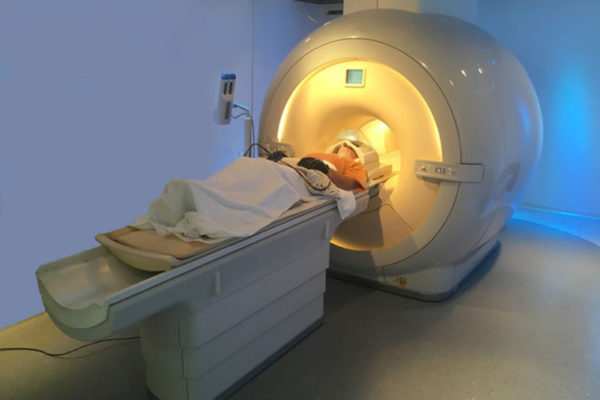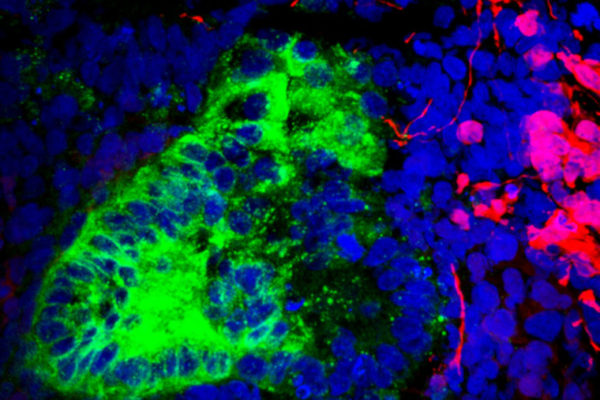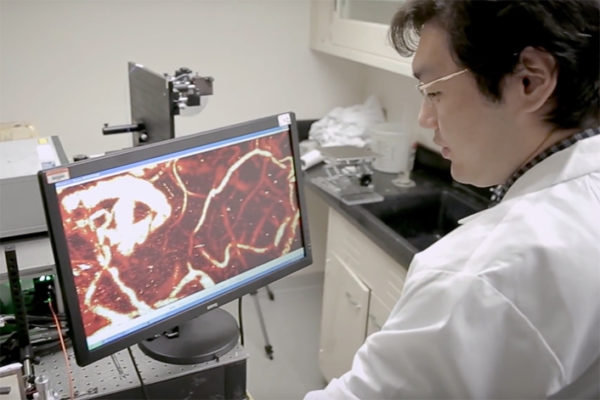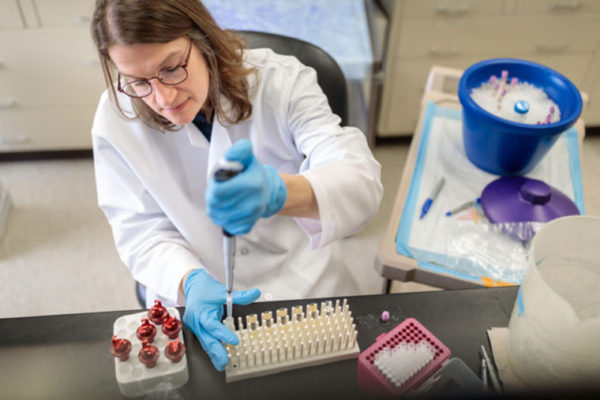Probiotics no help to young kids with stomach virus
A major U.S. study led by School of Medicine researchers has found that a commonly used probiotic is not effective in improving symptoms of diarrhea and vomiting in young children with gastroenteritis.
The Fighter: Audrey Odom John
Audrey Odom John, MD, PhD, is on a mission to fight the spread of infectious diseases like malaria through better, faster, more nimble diagnostic tools.
MRI scans shows promise in predicting dementia
Doctors may one day be able to gauge a patient’s risk of dementia with an MRI scan, according to a new study from the School of Medicine. Using a new technique for analyzing MRI data, researchers were able to predict who would experience cognitive decline with 89 percent accuracy.
Brain, muscle cells found lurking in kidney organoids grown in lab
School of Medicine scientists have identified rogue cells – namely brain and muscle cells – lurking in kidney organoids, an indication that the “recipes” used to coax stem cells into becoming kidney cells inadvertently are churning out other cell types. The researchers also demonstrated they could prevent most of those wayward cells from forming, an approach that could be adopted by scientists working with other organoids, such as those of the brain, lung or heart.
The Innovator: Jen Silva
WashU physician Jen Silva, MD, has co-founded a startup that will enable doctors to see real-time 3D holograms of the heart during cardiac procedures.
Cordell Institute signs ‘Paris Call for Trust and Security in Cyberspace’
Washington University’s newly launched Cordell Institute for Policy in Medicine & Law has signed on as one of the early signatories of French President Emanuel Macron’s “Paris Call for Trust and Security in Cyberspace,” announced Nov. 12 as part of the peace forum commemorating 100 years since the ending of World War I.
‘Hopeful technology’ could change detection, diagnosis of deadly ovarian cancer
Ovarian cancer claims the lives of more than 14,000 women in the U.S. each year, ranking fifth among cancer deaths in women. A multidisciplinary team at Washington University has found an innovative way to use sound and light to diagnose ovarian tumors, which may lead to a promising new diagnostic imaging technique to improve current standard of care.
New concussion recommendations for kids
The American Academy of Pediatrics has updated its concussion recommendations to support children and teens engaging in light physical activity and returning to school as they recover. The School of Medicine’s Mark Halstead, MD, was lead author of the report, which also advises against complete removal of electronic devices.
Cardiovascular disease, Alzheimer’s genetically linked
In the largest genetic study of Alzheimer’s disease, researchers at the School of Medicine and the University of California, San Francisco, have found that genes that increase risk of cardiovascular disease also heighten the risk for Alzheimer’s.
Link between autoimmune, heart disease explained in mice
School of Medicine researchers are beginning to understand the link between autoimmune disease and the cardiovascular system. A new study in mice shows that immune cells that arise during autoimmune disease cause cholesterol to become trapped inside blood vessels.
Older Stories









